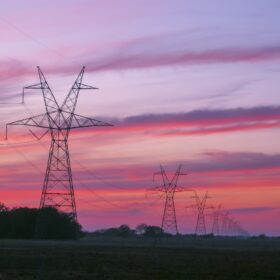Washington’s HB 2296 could improve home solar economics, but advocates say recent amendments are cause for concern
The bill, which is being considered in Senate committees after passing the state House, requires utilities to allow meter-mounted devices to connect between retail electric customer meters and meter sockets. These devices reduce complexity and installation time, ultimately saving homeowners money.
Fronius expands residential solar backup power with PV Point Comfort
The new solution provides an automated, retrofit-ready backup circuit for essential loads on Fronius GEN24 inverters.
Solar and storage are central to Trump energy priorities
Four reasons why the U.S. must deploy low-cost solar and battery storage to meet surging electricity demand and achieve national energy dominance.
People on the move: Arevon, GS Power, and more
Job moves in solar, storage, cleantech, utilities and energy transition finance.
Growing pains: Grid congestion as a renewables bottleneck
The electricity grid is a real bottleneck for energy in the United States, and it’s not only utilities and grid operators who are struggling. Grid congestion also puts pressure on renewable energy project owners and is as much a business problem as it is a technical one, writes Alon Mashkovich, CEO of energy management business software supplier enSights.
BlackRock investor led consortium buying AES in $10.7 billion cash deal
The transaction is the latest big announcement in a hot market for US power and utilities mergers and acquisitions, as companies jostle for position in anticipation of AI-driven demand spike.
New platform feature brings tariff and FEOC risk modeling into BESS procurement
Updated offerings from Anza hope to compress energy storage development timelines amid tariff volatility and policy risk.
Otovo announces acquisition of solar service provider EnergyAid
The acquisition will expand Otovo’s U.S. offerings to three states that rank among the highest in installed watts of small-scale solar per capita.
Conference preview: NABCEP CE 2026 – March 16-19, 2026
Solar industry workers from across the nation will attend the annual gathering to gain valuable skills, knowledge and insights from industry experts and representatives of companies from across the industry.
Solar-plus-storage M&A heats up as AI data centers drive demand
As AI data center growth tightens the U.S. grid, investors are pivoting toward de-risked, late-stage solar-plus-storage portfolios to secure firm capacity in a higher-rate environment, said a report from Deloitte.















